4/25: Moral Economies of Neoliberalism: A Workshop around Melinda Cooper’s Family Values
04/25/2017
6:00 pm - 8:00 pm
Skylight Conference Room, 9th Floor
Tuesday, April 25
6:00 – 8:00 PM
Skylight Room (9100)

Michel Foucault famously argued that Chicago school neoliberalism was beyond normativity, uninterested in the disciplinary categories of perversion or deviance. Yet neoliberal scholars were far from libertarian when it came to the legal regulation of sexuality and entertained a much more complex relationship to moral philosophy than what is suggested by Foucault. In this workshop, Melinda Cooper, (author of Family Values: Between Neoliberalism and the New Social Conservatism, 2017), will elucidate what she sees as the moral economy of neoliberalism and its provenance in the poor law tradition of family responsibility. This event will bring together Melinda Cooper with Leigh Claire La Berge, a scholar who has worked on the intersection of neoliberalism and sexual politics.
Speakers
Melinda Cooper is Associate Professor in the School of Social and Political Science at the University of Sydney, Australia. She is the author of Family Values: Between Neoliberalism and the New Social Conservatism, and Life as Surplus: Biotechnology and Capitalism in the Neoliberal Era.
Leigh Claire La Berge is currently working on a book entitled Wages Against Artwork: The Social Practice of Decommodification, sections of which have been published in South Atlantic Quarterly and Postmodern Culture. Her first book, Scandals and Abstraction: Financial Fiction of the Long 1980s (Oxford, 2015) tracked the contest between postmodern and realist fictions about finance in a nascent era of financialization, and her articles have appeared in Radical Philosophy, Studies in American Fiction, Criticism, Journal of Cultural Economy, and the Radical History Review. She is the co-editor, along with Alison Shonkwiler, of Reading Capitalist Realism (Iowa, 2014). She is assistant professor of English at the City University of New York (BMCC) and a faculty fellow at the Center for Place, Culture and Politics.
This event is sponsored by Zone Books, the Center for the Humanities, the PhD Program in Political Science, and the Center for Place, Culture and Politics at the Graduate Center, CUNY. It is free and open to the public.
3/29: Book Launch: Celebrating Innovative New Work In Anthropology
03/29/2017
5:00 pm - 7:30 pm
Skylight Conference Room, 9th Floor
3/29: Book Launch: Celebrating Innovative New Work In Anthropology
March 29, 2017
5pm-6pm: Discussion @ Skylight Room (9th Floor)
6pm – 7:30pm: Reception @ Room 6304.01
Facebook event page: https://www.facebook.com/events/407276386304688/
Spatializing Culture, by Setha Low (CUNY Graduate Center)
The Seduction of Quantification, by Sally Merry (New York University)
In conversation with:
Emily Martin (New York University)
Katherine Verdery (CUNY Graduate Center)

This event is sponsored by the Center for Place, Culture and Politics, Graduate Center, CUNY. It is free and open to the public.
3/24: New York City Screening: America Divided – A House Divided
03/24/2017
6:00 pm - 8:30 pm
Elebash Recital Hall
3/24: New York City Screening: America Divided – A House Divided
Friday March 24, 2017
6:00pm
CUNY Graduate Center 365 Fifth Ave.
Elebash Recital Hall
New York NY 10016
You Must RSVP to Attend*
*Thank you for your interest in the screening of the documentary film America Divided:A House Divided. The event on March 24th at the City University on New York Graduate Center is sold out! However there are standby reservations being taken at this time. To sign up for standby tickets, click here.

Released in the run-up to the 2016 presidential election, AMERICA DIVIDED is an EPIX Original docu-series, executive produced by Norman Lear, Shonda Rhimes and Common, features narratives around inequality in education, housing, healthcare, labor, criminal justice and the political system — all woven into an eight-story, five-part series. The show follows high-profile correspondents as they explore aspects of inequality related to their own biographies.
This series cuts to the heart of the inequality crisis, exploring life-and-death struggles around the economic, social and political divide. The filmmakers aim is to expose the damage extreme inequality inflicts on all Americans, reveal its systemic causes, and celebrate real-world heroes fighting for solutions.
Norman Lear explores the housing divide in New York City, where he is confronted by one of the nation’s starkest images of inequality: a record number of homeless people living in the shadows of luxury skyscrapers filled with apartments purposely being kept empty. The creator of “All in the Family,” “Good Times” and “The Jeffersons” speaks with tenants, realtors, homeless people, housing activists, landlords and city officials — investigating the Big Apple’s affordability crisis, hedge fund speculation on residential housing, and a legacy of racist discrimination that still persists today.
A panel discussion on housing issues in New York city will follow the screening. Confirmed speakers include;
Gabriela Rendon – Assistant Professor of Urban Planning at New School Parsons (confirmed moderator)
Solly Granatstein – Award winning television producer and director, co-creator of the docu-series (confirmed participant)
Sam Stein – Ph.D student at the CUNY Graduate Center (confirmed discussant)
Lourdes Dela Cruz – Member leader of (CASA) Community Action for Safe Apartments (confirmed discussant)

This event is free and open to the public. It is sponsored by the Center for Place, Culture and Politics, CUNY Graduate Center, and the Left Forum.
For inquiries regarding this event please contact to Robert Robinson:
ph- (212) 253-1710 ext 319
3/16: Narrative in Practice: Opacity, Dissonance, Encounter, Underground, Erasure
03/16/2017
10:00 am - 4:30 pm
Room 9205
March 16, 2017
10am-4:30pm
Room 9205
The “narrative turn” in the social sciences, as manifested through the renewed emphasis on human agency, the centrality of language to the negotiation of meaning and the construction of identity in everyday life, has marked a resurgence of interest in narrative as a social act, on storytelling as a social process, and life histories as social objects for investigation. This symposium considers narrative in practice, emphasizing the range of challenges scholars encounter when engaging in storytelling, particularly given our desire to “speak back” and counter hegemonic historical narratives that violently flatten the identities, experiences, and radical possibilities of those we engage in our scholarly and political work. What political work do narratives perform, and to what end? Although narratives can be a site of resistance that can lead to the authoring and promoting of new and potentially transformative stories (local stories, in particular), we must also consider their stubborn ability to feed and maintain power structures. Why do some narratives achieve widespread appeal? This symposium will engage a variety of research and theoretical orientations across the humanities and social sciences threading the notion of narratives into practice to themes of dissonance, encounter, opacity, underground, and erasure.
SPEAKERS
Erika Denisse Grajeda, PH.D.
Marilyn J. Gittell Post-Doctoral Fellow, CUNY Graduate Center
Silence, Narrativity, and ‘The Right to Opacity’: the paradoxes and transformative possibilities of storytelling in contemporary domestic worker organizing in the U.S.
Mamyrah Douge-Prosper, PH.D.
Post-Doctoral Fellow, CUNY Graduate Center, The Institute for Research on the African Diaspora in the Americas and the Caribbean (IRADAC)
Solidarity Economies in Rural Haiti: Praxes of anti-colonial feminist nationalism
Nessette Falu, PH.D.
Post-Doctoral Fellow, CUNY Graduate Center, The Institute for Research on the African Diaspora in the Americas and the Caribbean (IRADAC)
Ethical Encounters: The disjunctures of narrativizing masculinities, race, and “best place” in Brazilian gynecology
Sonia Vaz Borges, PH.D.
Post-Doctoral Fellow, CUNY Graduate Center, The Center for Place, Culture, and Politics
Silences in African History: The underground education structures
Evelyne Laurent-Perrault, PH.D.
Post-Doctoral Fellow, CUNY Graduate Center, The Institute for Research on the African Diaspora in the Americas and the Caribbean (IRADAC)
Black Women Litigants: Unveiling narratives of erasure and dis-possession in Spanish America, 1770-1800

This event is sponsored by The Institute for Research on the African Diaspora in the Americas and the Caribbean, The Center for Place, Culture, and Politics, Gittell Collective and the Anthropology Department.
3/7: Film Screening and Dialogue: Carré Rouge Sur Fond Noir / Red Square on the Blackboard
03/07/2017
6:00 pm - 9:00 pm
Skylight Conference Room, 9th Floor
3/7: Film Screening and Dialogue: Carré Rouge Sur Fond Noir / Red Square on the Blackboard
Tuesday, March 7, 6-9pm
CUNY Graduate Center 365 Fifth Ave,
Skylight Room (9th floor)
RSVP/share: https://www.facebook.com/events/789148951241485/
One the eve of the March 8 International Women’s Strike and education strike/walkout actions from Puerto Rico to NYC, the new coalition Free CUNY will screen the film “Carré Rouge Sur Fond Noir / Red Square on the Blackboard.” We will be joined by veterans of the 2012 Quebec Student Strike who started a movement of over 400,000 students that defeated a proposed 78% tuition hike in Canada. After screening the documentary, we will discuss how similar success can be won here in New York City. This event is free, but seating is limited, so arrive early!
Free CUNY – a new cross-campus coalition of undergraduates, graduate students, adjuncts, staff, and alumni – is launching a long-term campaign to create a completely tuition-free CUNY with social justice-centered curriculum, Open Admissions, student stipends, equal pay for equal teaching work, and beyond. www.free-cuny.org + makecunyfreeagain@gmail.com
This event is co-hosted with the Center for Place, Culture, and Politics at the CUNY Graduate Center.
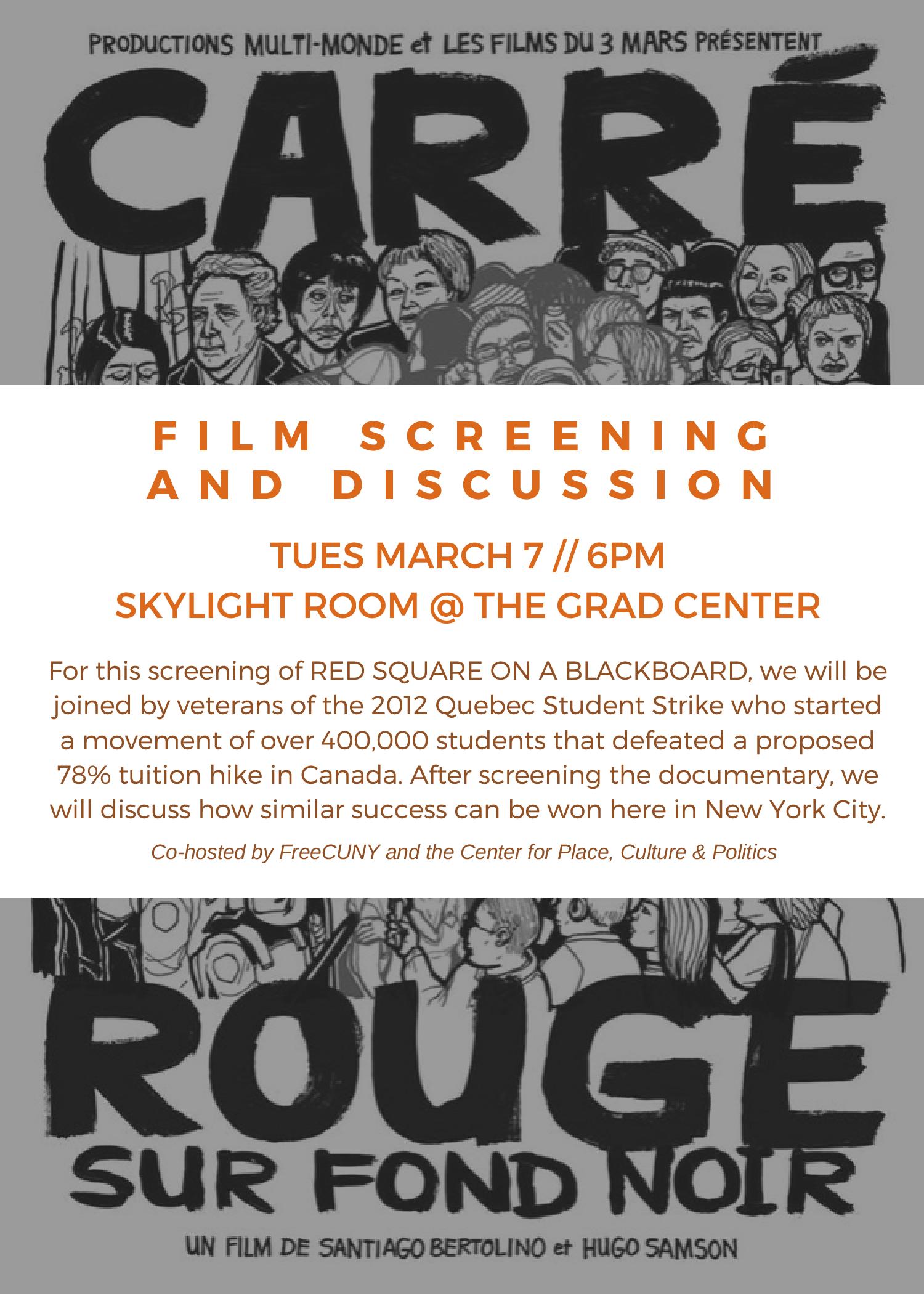
3/6: Global Perspectives on the Fight for Higher Education
03/06/2017
2:00 pm - 4:00 pm
Skylight Conference Room, 9th Floor
3/6: Global Perspectives on the Fight for Higher Education
Monday, March 6, 2017
2 pm – 4 pm
Skylight Room (9100)
Livestream: bit.ly/fight4edu-live
RSVP: https://www.eventbrite.com/e/global-perspectives-on-the-fight-for-higher-education-registration-32250509141
Join the Futures Initiative for a roundtable discussion on “Global Perspectives on the Fight for Higher Education,” in which we will share strategies across the globe and highlight the urgent need for abolition and decolonial education. The discussion will (re)focus our collective attention on how the university can be repurposed to serve the larger public towards liberatory ends.
The discussion will be moderated by Allison Guess (Futures Initiative Fellow, GC Doctoral Student in Earth and Environmental Sciences (Geography).
This roundtable discussion is the 5th in this year’s series The University Worth Fighting For and ties liberation pedagogical practices to race, class, gender and institutional change.
During and after the event, add your questions and comments to this Google Doc. We also invite you to join a Twitter chat on “The Global Fight for Higher Education” hosted by HASTAC Scholars on March 6th from 4p.m. to 5 p.m. at the hashtag #fight4edu.
Event Schedule:
2:00-3:00: Marianna Poyares (Occupy in Brazil, high schools & Universities) Zandi Radebe (Demands for Decolonial Edu. in South Africa) Cleopatra Funzani Mtembu (Student organizing & Fallist Movement, South Africa)
3:00-4:00: Eve Tuck (Indigenous Education in Canada) Zee Dempster (PSC at CUNY and why important to get involved) Arianna Martinez (Sanctuary Movement at LaGuardia)
4:00: Closing Remarks
Speakers:
Marianna Poyares is a PhD student at The New School for Social Research in Philosophy. Before moving to NYC, Poyares earned a Masters in at the University of São Paulo in Philosophy and taught Portuguese at Bridge Languatec. Poyares then went on to work at the Department of Education of the City Government of Rio de Janeiro, as administrator, coordinating a project that blended sports and education in Middle Schools, part of the so-called Olympic legacy. She also worked as part-time faculty at the Federal University of Rio de Janeiro while the nation-wide protests of 2013 were taking place. Now in NYC, she has been working at the Provost Office of The New School in designing curricula for new undergraduate initiatives. Her academic research focuses on ethics and political philosophy. She is particularly interested in education as emancipation – taking from Liberation Philosophy – and in the active role of educational institutions within communities.
Zandi Radebe is a junior lecturer in the department of Political Science at the University of South Africa. She teaches Political Philosophy and her research interest include Black Radical Thought, Black Consciousness Pan Afrikan Thought and Black Existentialism. Radebe is a member of the UNISA Decoloniality Collective and has been instrumental in the advancement of Decolonility on her campus, including coordinating the annual UNISA Summer School on Decolonizing Knowledge, Power and Being program. As an activist and scholar. Radebe is the founder of many liberation-based organizations in her community, including Siyaphambili Youth Pioneers (SYP); a youth mentorship program that engages young minds in a number of consciousness building activities through education and learning. Radebe is also the leader and founder of the Blackhouse Kollective; a Soweto based initiative that concerns with community programs that education on Anti-Black racism and Decoloniality through activism and scholarship. The Kollective has been very instrumental in the student struggles in South Africa and is home to social activists, artist, students in law; philosophy, political sciences, educators, professors, intellectuals and young professionals. The Blackhouse Kollective has internationally acknowledged luminaries in our arena of discourse to share knowledge with our community through public lectures. These leading thinkers include Charles Mills, Lewis Gordon, Janine Jones, Joy James, Magobo Ramose, Cde President Tiyani Mabasa, Oyeronke Oyewumi, CK Raju and Nelson Maldonado-Torres. The long term objective is building community driven centre of knowledge production centre open to all black people and for the purpose of appropriating Black Thought as a tool for the liberation of occupied Azania.
Cleopatra Funzani Mtembu is a young activist born in Kagiso and grew up in Soweto South Africa. A Finance graduate from the University of Johannesburg, she is currently pursuing her postgraduate studies. Fees Must Fall and Outsourcing Must Fall was the beginning of her on the ground activism and she was one of the students in the forefront of these movements within her university. Fees Must Fall is a call made by students across universities in South Africa for the decolonization of the school curriculum and stood in opposition to the exorbitant cost of studies that lead to the commodification of education. Outsourcing Must Fall emanated from recognizing that students and workers’ struggles are intertwined. Students and workers demanded that the universities insource all its unskilled workers so to receive similar benefits as its skilled workers and to pay them decent salaries. She is a member of the Fallist movement, which primarily has three guiding cardinal pillars: Black Consciousness, Pan-Africanism and Black radical feminism. She is also a member and a student of the Blackhouse Kollective, a community based decolonization organization.
Zee Dempster is the Assistant Director of IRADAC and the Assistant Coordinator of the Africana Studies Certificate Program at the Graduate Center. She has a B.S in Computer Science and a M.A in Government and Politics from St. John’s University. She is an active union member who serves as a HEO delegate for the PSC (Professional Staff Congress) Graduate Center chapter, on the Labor Management and Adjunct committees and as a HEO representative to the PSC CUNY Welfare Fund.
Eve Tuck is Associate Professor of Critical Race and Indigenous Studies at the Ontario Institute for Studies in Education (OISE), University of Toronto. She is a William T Grant Scholar (2015-2020) and was a Ford Foundation Postdoctoral Fellow in 2011.Tuck’s writing and research is on urban education and Indigenous studies. As a whole, her work focuses on how Indigenous social thought can be engaged to create more fair and just social policy, more meaningful social movements, and when that doesn’t work, robust approaches to decolonization. Tuck is Unangax and is an enrolled member of the Aleut Community of St. Paul Island, Alaska.
Arianna Martinez is an Associate Professor of Urban Studies at LaGuardia Community College. She received her PhD from Rutgers University in urban planning and geography. She has analyzed the criminalization of Latino immigrant communities in municipalities where both space and citizenship are hotly contested. Martinez’s current scholarship focuses on national immigration policy, the urban transformation and empowerment of Latino communities, and LGBTQ immigrant enclaves. She is happy to call Queens her home.
Event Organizer & Moderator:
Allison Guess is a Doctoral Fellow at the Futures Initiative and PhD student in the program of Earth and Environmental Sciences (Geography) at the Graduate Center at CUNY. Guess’ research is looks at Black geographies, Black people’s relationships to land in the Western Hemisphere and (Black) productions of place. Concerned with collective liberation, Allison is theorizing (Black geographic) abundance and some of her scholarly work can be found published in American Quarterly, Decolonization: Indigeneity, Education & Society and Departures in Critical Qualitative Research. Aside from academia Allison has been a member of the Black/Land Project, a community research/interview project that amplifies Black people’s relationships to land and place and she is the New York City network leader for a national Black-led organization called Outdoor Afro. Allison calls herself a geotheorist of Black relationships to land, a concept she coined in 2014. Follow Allison on Twitter at @AllisonGuess1
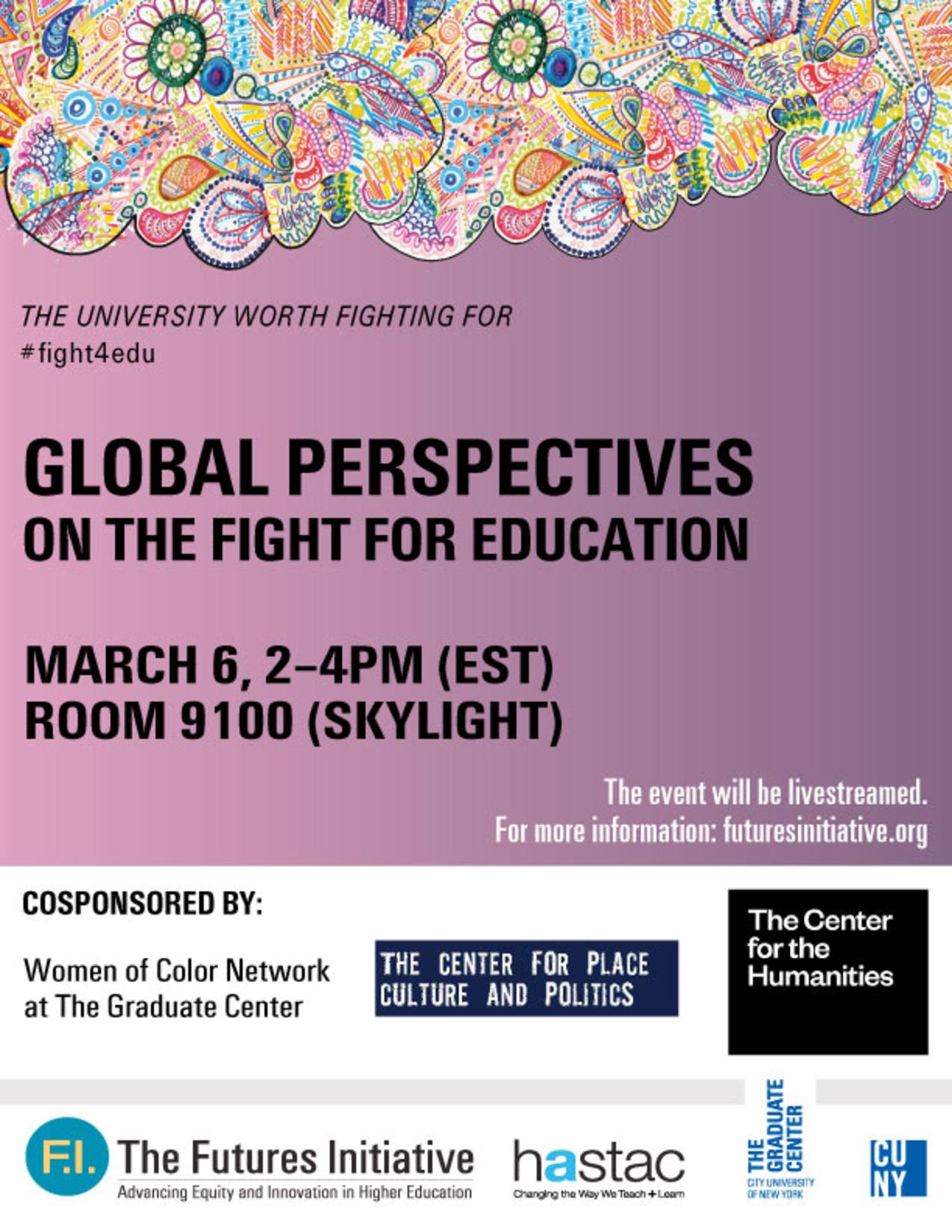
This event is co-sponsored by The Center for Place, Culture and Politics, Women of Color Network, The Center for the Humanities and HASTAC. It is free and open to the public.
BOOK EVENT: Third Wave Capitalism: How Money, Power, and the Pursuit of Self-Interest have Imperiled the American Dream
02/15/2017
6:30 pm
Sociology Lounge, Room 6112
February 15, 2017
6:30
Sociology Lounge, Room 6112
America of recent decades is a land of contradictions: Soaring wealth and a poverty level above that of 1973; productivity up but wages for most Americans stagnant; the apotheosis of individual freedom and the paralysis of democracy; the election of a black president and the incarceration of a million black men; a growing acceptance of racial, ethnic, gender, and sexual diversity and the triumph of a racially, ethnically, and sexually incendiary campaign for president; the increase in educational attainment and the growing mismatch between student skills and the needs of the job market; the cost of medical care skyrocketing and a decline in indicators of Americans’ health compared to other affluent countries; long periods of prosperity and soaring rates of depression, anxiety, and self-reported loneliness; a stagnating economy for most Americans and rage directed at those who would use government to provide relief.
Third Wave Capitalism seeks to understand these contradictions. It argues that the 1970s mark a turning point in American history. Just as the industrial capitalism of the nineteenth century gave way to the corporate capitalism of the first part of the twentieth century, so the latter gave way to a third phase. “Third Wave Capitalism” is distinguished by the emergence of giant multinational corporations and large “non-profit” organizations; by novel technologies such as computers, the Internet, and biotech; and by globalization of production and of the market. At a deeper level, it is characterized by a rise in “rent-seeking” – the use of power to grab a larger share of the aggregate social wealth (as opposed to making money by providing something more or different that before); by a blurring of the lines between public and private sectors; by the decline of unions and other countervailing forces, and by the rise of virulent individualism and uncontested free market ideologies at the expense of any collective will to solve societal problems.
The book pursues this theme with detailed studies of the health care system, the school reform movement, the persistence of racial disparities and of poverty and the rise of the criminal justice system as a system of social control, the growing pressures on professionals such as writers and teachers, and the apparent rise in levels of emotional distress (expressed both as depression and anxiety and as political rage). It concludes with speculations as to the obstacles and preconditions for progressive social change.
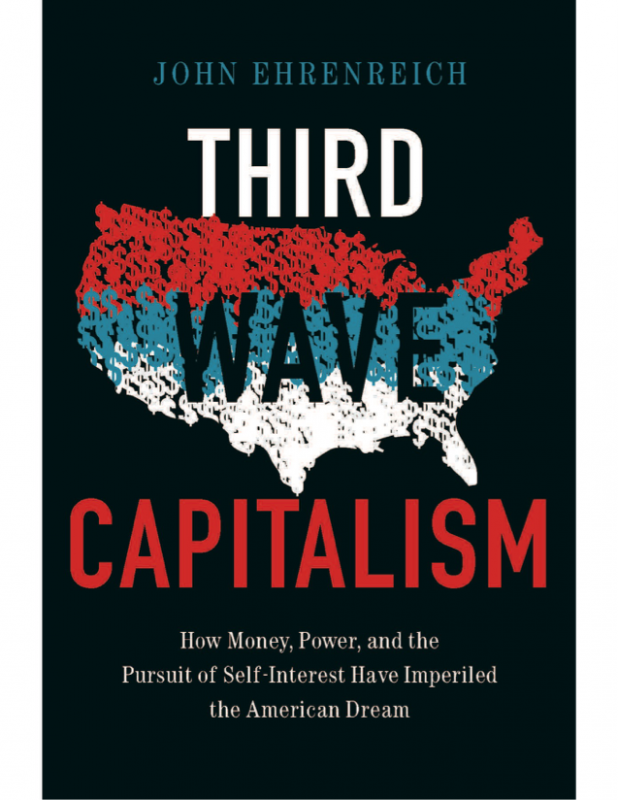
Speakers
John Ehrenreich is Professor of Psychology (formerly Professor of American Studies) at the State University of New York – Old Westbury. He is best known for his work on health care politics, including The American Health Empire: Power, Profits, and Politics (1971, co-authored with his then-wife, Barbara Ehrenreich), and The Cultural Crisis of Modern Medicine (1976); his work with Barbara Ehrenreich on the “professional managerial class;” and his study of the history of American social policy, The Altruistic Imagination (1985). He is a 2016-2017 Visiting Research Scholar at the Center for Place, Culture, and Politics. His most recent book, Third Wave Capitalism: How Money, Power, and the Pursuit of Self Interest have Imperiled the American Dream, was published by Cornell University Press in 2016.
Mimi Abramovitz is Bertha Capen Reynolds Professor at the Silberman School of Social Work at Hunter College. She has written extensively about the issues of women, work, poverty, social welfare policy, and the history of activism among low income women. Her books include the award-winning Under Attack, Fighting Back: Women and Welfare in the U.S. (2000); Regulating the Lives of Women: Social Welfare Policy From Colonial Times to the Present, (1999); and, with Joel Blau, The Dynamics of Social Welfare Policy ( 2010). Dr. Abramovitz has been inducted into the Columbia University School of Social Work Hall of Fame and received the 2013 Humanitarian and Leadership Award from the Association for International Conferences.
David Harvey is Distinguished Professor of Anthropology and Geography at the City University of New York (CUNY) and author of various books, articles, and lectures. His books include Seventeen Contradictions and the End of Capitalism (2014) and The Enigma of Capital and the Crises of Capitalism (2010), A Companion to Marx’s Capital (2010), and A Brief History of Neo-Liberalism (2005). Professor Harvey was director of the Center for Place, Culture and Politics from 2008-2014, and is currently Research Director at the Center.
Frances Fox Piven is Distinguished Professor of Political Science at the City University of New York (CUNY). Piven is known equally for her contributions to social theory and for her social activism. A veteran of the war on poverty and subsequent welfare-rights protests both in New York City and on the national stage, she has been instrumental in formulating the theoretical underpinnings of those movements. Among her many books are the best selling Poor People’s Movements (1977), and Regulating the Poor: The Functions of Public Welfare (1972), both coauthored with Richard CA. Cloward, and Challenging Authority: How Ordinary People Change America (2008). Professor Piven was president of the American Sociological Association in 2007.
Peter Hitchcock is Professor of English at Baruch College and the Graduate Center of the City University of New York. He is the author of five books, including The Long Space: Transnationalism and Post Colonial Form (2009). He is Associate Director of the Center for Place, Culture, and Politics.
This event is sponsored by the Center for Place, Culture and Politics, Graduate Center, CUNY. It is free and open to the public.
Book Event: The Civil war in the United States; Karl Marx and Friedrich Engels
12/06/2016
6:00 pm - 8:00 pm
Sociology Lounge, Room 6112
12/6: Book Event: The Civil War in the United States; Karl Marx and Friedrich Engels
December 6, 2016
6 -8 pm
Sociology Lounge, Room 6112
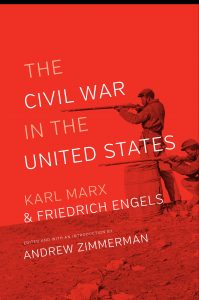 Andrew Zimmerman will discuss his new edition of the writings of Marx and Engels on the American Civil War, emphasizing the importance of these writings for thinking about race, class, and revolution today. The American Civil War so profoundly shaped Marx and Engels’s understanding of social revolution and international politics that it marks a watershed in the history of communism as much as it does in the history of the United States. A complete revision of the 1937 edition of the Civil War writings of Marx and Engels, the book incorporates new texts by Marx and Engels, as well as by US authors, including Communist Union Army officer Joseph Weydemeyer and African American scholar and activist W.E.B. Du Bois. The first edition of the book itself is also a landmark in the history of anti-communist repression in the United States: its editor, Herbert Morais (publishing under the pseudonym Richard Enmale), was fired from Brooklyn College in part for producing that edition.
Andrew Zimmerman will discuss his new edition of the writings of Marx and Engels on the American Civil War, emphasizing the importance of these writings for thinking about race, class, and revolution today. The American Civil War so profoundly shaped Marx and Engels’s understanding of social revolution and international politics that it marks a watershed in the history of communism as much as it does in the history of the United States. A complete revision of the 1937 edition of the Civil War writings of Marx and Engels, the book incorporates new texts by Marx and Engels, as well as by US authors, including Communist Union Army officer Joseph Weydemeyer and African American scholar and activist W.E.B. Du Bois. The first edition of the book itself is also a landmark in the history of anti-communist repression in the United States: its editor, Herbert Morais (publishing under the pseudonym Richard Enmale), was fired from Brooklyn College in part for producing that edition.
This event is sponsored by the Center for Place, Culture and Politics, Graduate Center, CUNY. It is free and open to the public.
DAVID HARVEY LECTURE SERIES (updated dates and locations): MARX AND CAPITAL: THE CONCEPT, THE BOOK, THE HISTORY
12/05/2016
6:30 pm - 8:30 pm
Room 9204
MARX AND CAPITAL: THE CONCEPT, THE BOOK, THE HISTORY
A SERIES OF 6 MONDAY EVENING LECTURES IN POLITICAL ECONOMY BY DAVID HARVEY
6:30-8:30 PM
DECEMBER 5: BAD INFINITY AND THE MADNESS OF ECONOMIC REASON (rooms 9204/9205/9206/9207 -capacity 160)
365 5th Avenue, NY, NY 10016
****Due to overwhelming interest, some locations and dates of these events have been changed. Please note carefully the new locations and dates****
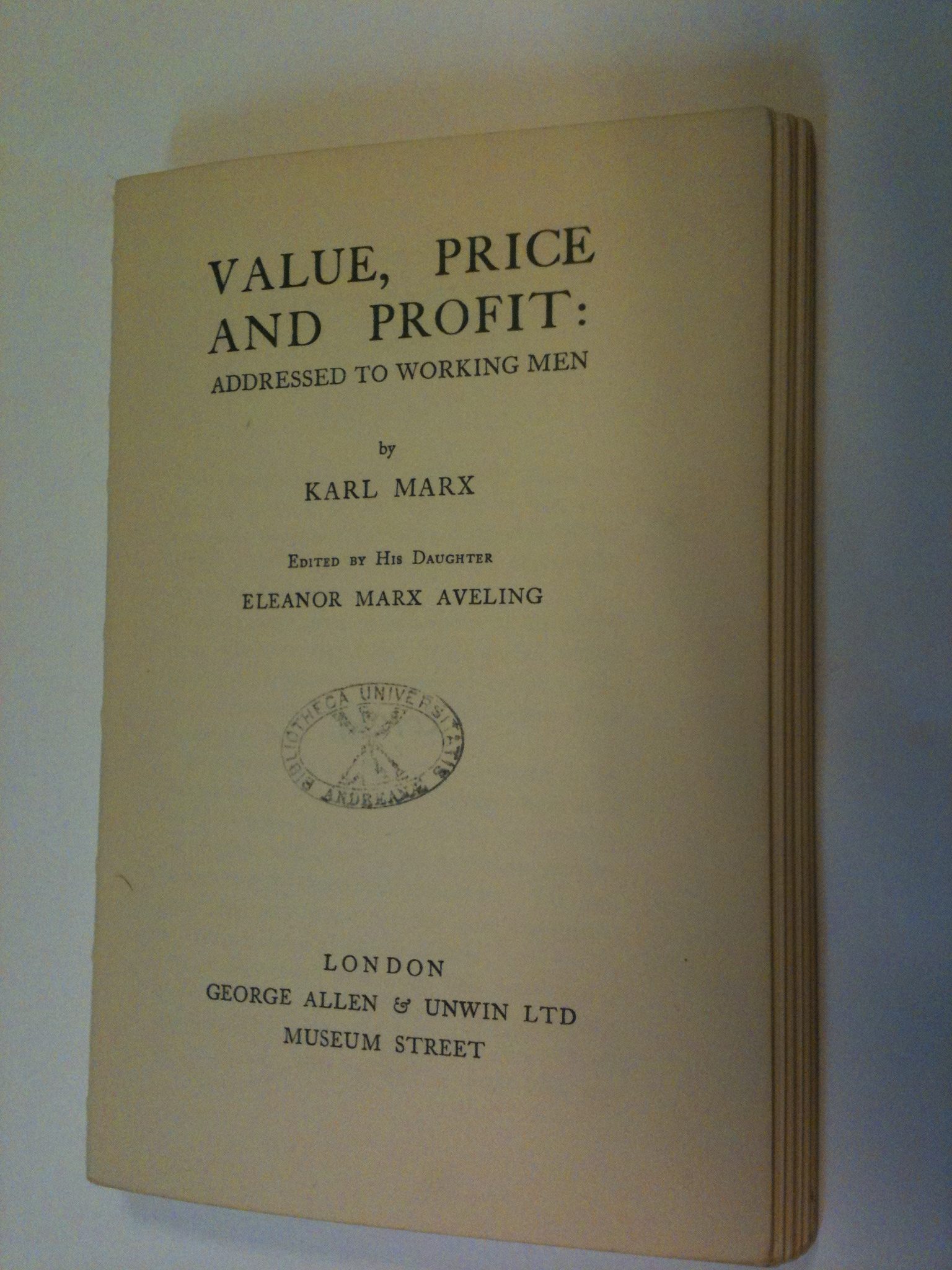
All lectures in this series will be held from 6:30-8:30 PM at 365 5th Avenue, NY, NY 10016.
*Please note carefully the locations for each date and the capacity of the room, as entry is on a first come basis.
**Videos of the first three lectures have been posted on David Harvey’s website and the CPCP website, and the upcoming lectures will be posted in their aftermath in the coming months.
This event is sponsored by the Center for Place, Culture and Politics. It is free and open to the public. Photo ID is required to enter the building.
What now? The roots of the present economic crisis and the way forward: a discussion with David Harvey and Robert Brenner
12/01/2016
7:00 pm - 9:00 pm
Elebash Recital Hall
The Center for Place, Culture and Politics, the Advanced Research Collaborative and the Center for the Humanities present:
What now? The roots of the present economic crisis and the way forward: a discussion with David Harvey and Robert Brenner
Elebash Recital Hall
Thursday December 1
7.00 pm – 9.00 pm
livestreamed here: http://videostreaming.gc.cuny.edu/videos/
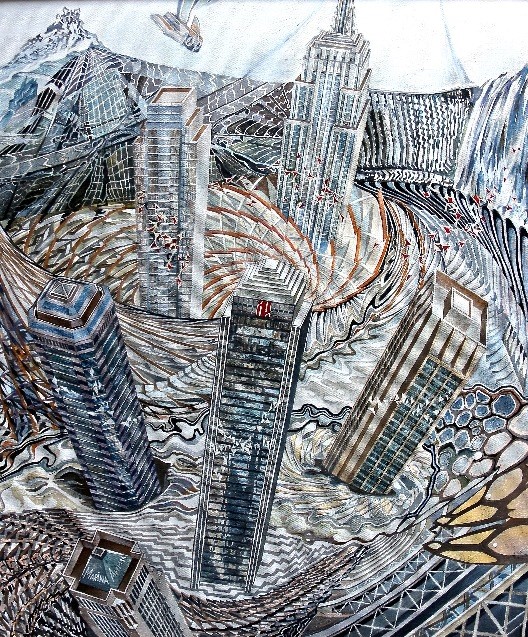 Whirlwind, by Marina Ahun
Whirlwind, by Marina Ahun
Robert Brenner is Visiting Professor in the Department of Economics at the New School University and author of many books and papers on the early development of capitalism and the current economic crisis. The Brenner Debate on the origins of capitalism to this day remains seminal on this topic. More recently his work –The Boom and the Bubble: the US in the World Economy (London, Verso, 2002) and Economics of Global Turbulence (London, Verso, 2006)–has focused on the fundamental contradictions of contemporary capitalism. His most recent book is The Political Economy of the Rank and File Rebellion in Rebel Rank and File: Labor Militancy and Revolt from Below during the Long 1970s eds. A. Brenner et. al. (London, Verso, 2010)
David Harvey is Distinguished Professor of Anthropology and Geography at the City University of New York (CUNY) and author of various books, articles, and lectures. He is the author of Seventeen Contradictions and the End of Capitalism(Profile Books, 2014), one of The Guardian’s(http://www.guardian.co.uk/books/2011/dec/02/books-christmas-presents-economics-reviews“) Best Books of 2011, The Enigma of Capital and the Crises of Capitalism (Oxford University Press, 2010). Other books include A Companion to Marx’s Capital, Limits to Capital, and Social Justice and the City. Professor Harvey has been teaching Karl Marx’s Capital for nearly 40 years. His lectures on Marx’s Volumes I and II are available for download (free) on his website. He was director of the Center for Place, Culture and Politics from 2008-2014.
This event is sponsored by the Advanced Research Collaborative, Center for Place, Culture and Politics, and Center for the Humanities, Graduate Center, CUNY. It is free and open to the public.













